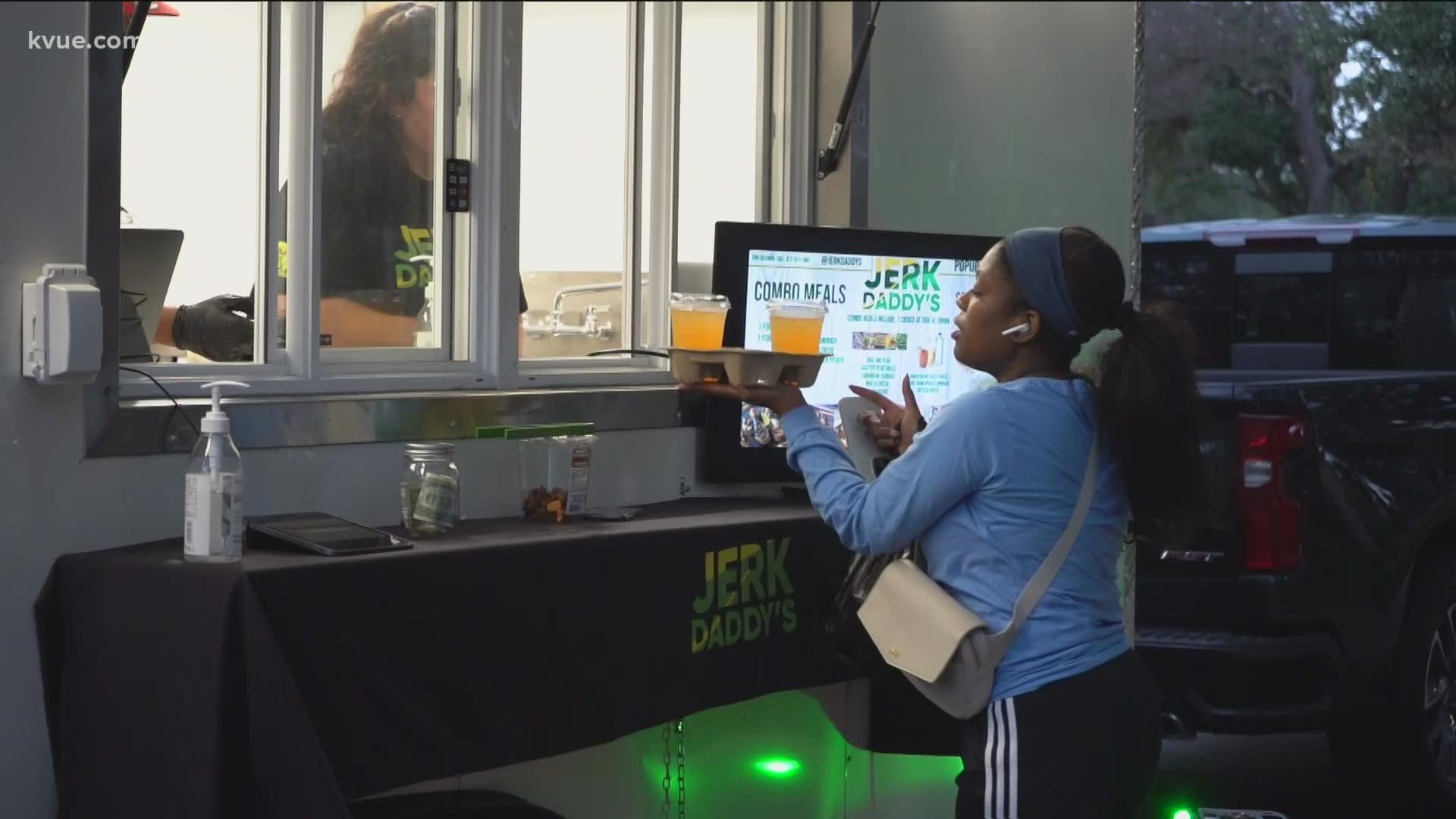AUSTIN, Texas — Throughout the pandemic, small businesses bore the brunt of losing customers. As a silver lining to the past 20 months, food trucks found a way to stay afloat – and even grow.
"I've worked from Leander all the way to San Marcos," Orlandus Stafford, co-owner of O's Chop House and Jerk Daddy's, said. "I've also done catering. I've done two weddings, one of 300 ... We've done birthdays. We've done quinceañeras, we've done a lot of things outside of our pop-up environment. But other than that, the HOA's and the apartments have been very, very good to us."
Stafford opened his first food service business, O's Chop House, in August 2020. He made it a family affair: partnering with his brother for the business, welcoming his kids inside the trailer, and his wife retiring early from her previous job to join him.
When O's Chop House opened, it was just a tent with two plastic tables. Stafford expanded it to its own food trailer, opened Jerk Daddy's as a second food trailer, and has a third trailer in the works.
"I went in and talked to my brother, Dream, about my career and where I was headed [after being furloughed]," Stafford said. "We discussed like, 'What do I love to do and what's my 'superpower?' So cooking was it, and I love to cook. I've got all my life history of family, of cooking and things of that nature."
Stafford's trailers travel across the Austin area visiting neighborhoods, apartment complexes, and setting up shop where people can find them rather than settling in a food truck lot.
David Poku organizes the neighborhood rotations for O's Chop House, Jerk Daddy's, and 30 other food trucks. He rotates trucks seven days a week.
"What everyone traditionally knew, like the ice cream man as when they came through neighborhoods, this would kind of change that and create a shift in the food truck community in Austin to where this was going to be the new norm," Poku said.
Poku started the ATX Food Truck festival years ago developing relationships with food truck owners and other developments to help food trucks find space. When the pandemic started, he took the contacts he knew and found a way to give the small business owners the business to survive 2020.
"The conception of the idea was based on helping the food trucks that were at permanent locations," Poku said. "The traffic died, so I developed the connection and resources with the property managers, apartments, [Home Owners Associations], and connected the food trucks to go direct, go directly to those neighborhoods and serve those communities and those residents. That was a way for trucks to be mobile and to make money without really being too affected from the traffic that would die at their regular permanent location."
The rotations have helped small business owners like Stafford and his family spread their name, and their food, to people all across the Austin area, encouraging them to support local people.
"I am expanding in regards to my life as an entrepreneur, going from the corporate environment to living life as an entrepreneur, which has been a shock for me. Very much a whole shock, but it's been a great shock. And next thing you know, you'll probably see me on these magazines!" Stafford said.
Poku hopes to continue connecting property managers with new food trucks in an effort to share the wealth and diversity of food that exists in Austin.
PEOPLE ARE ALSO READING:

